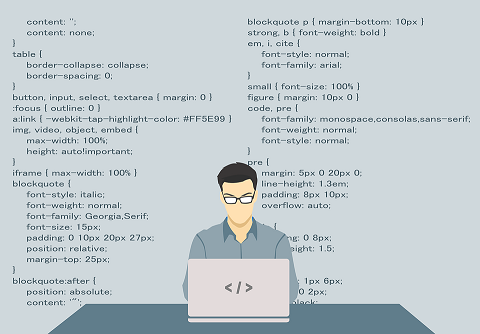
Information Systems and Technology is a rapidly-growing sector and has been for many years.
Commonly known as IS&T, many different jobs exist within this field, with more and more continually emerging through the evolution and growth of the industry. From Software Development to Data Management and Cyber Security Engineering, there are all kinds of IS&T roles for all sorts of different people.
But what are the skills needed to work in the IS&T industry and to become successful within this sector?
With such a broad range of roles available, employers within the IS&T industry look for a variety of different skills when seeking out new recruits. Some may seek candidates with expertise in a specific programming language or piece of software, while others may look for a more generic skill set. Here are just a few examples...
Key IS&T Skills
- Communication – Contrary to the stereotypical view of IS&T professionals as socially-awkward introverts who struggle to talk to other human beings, communication skills are actually imperative within the IS&T industry. This is due to the cross-departmental nature of many roles within the field, where individuals are needed to work across many groups and teams. IS&T professionals often have to supply technological solutions for individuals who lack their expertise, and they are often called upon to discuss problems and solutions in a way that’s easy to understand. Additionally, IS&T professionals are often expected to present ideas and reports to other individuals and groups within the business they work in, again requiring good levels of communication.
- Time Management – Many professionals within the IS&T sector are required to be self-motivated and self-managed, and a huge aspect of being self-managed requires the ability to have excellent time management skills. Work may often take longer than planned to complete; therefore, as an IS&T professional, you should be able to accurately evaluate how long a specific assignment is going to take to finish and then have the ability to stick to deadlines, whether that’s on a daily, weekly, monthly or task-by-task basis.
- Coding – Coding is one of the very basic skills that any IS&T professional should possess, as it’s a skill that the vast majority of employers in this sector look for. If a business is looking to hire a programmer, the employer may seek an individual who is competent in multiple languages. Even for roles that may not specifically involve coding, an IS&T candidate should at least have a working knowledge of the simpler coding languages (such as C++ and HTML) and an understanding of the code-writing process in order to participate in software development projects and manage things such as quality assurance. Coding, however, requires more than just aptitude with languages - it requires logical thought, good problem solving skills, the ability to utilise various technologies, and of course an extensive understanding of information systems.
- Networking – Networking is an extension of communication and concerns the ability to gather groups of people within a working environment to share the things that they know. This is done in order to shape a system of knowledge that is bigger than the parts within it.
These are just some of the many, many skills that a candidate looking for a position within the IS&T industry may be expected to have. Some roles require more specific skills; it is therefore recommended that, before you apply for any IS&T role, you read the full job description and are aware of all the skills required.
View & Apply for IS&T Jobs >
Image from pixabay.com
